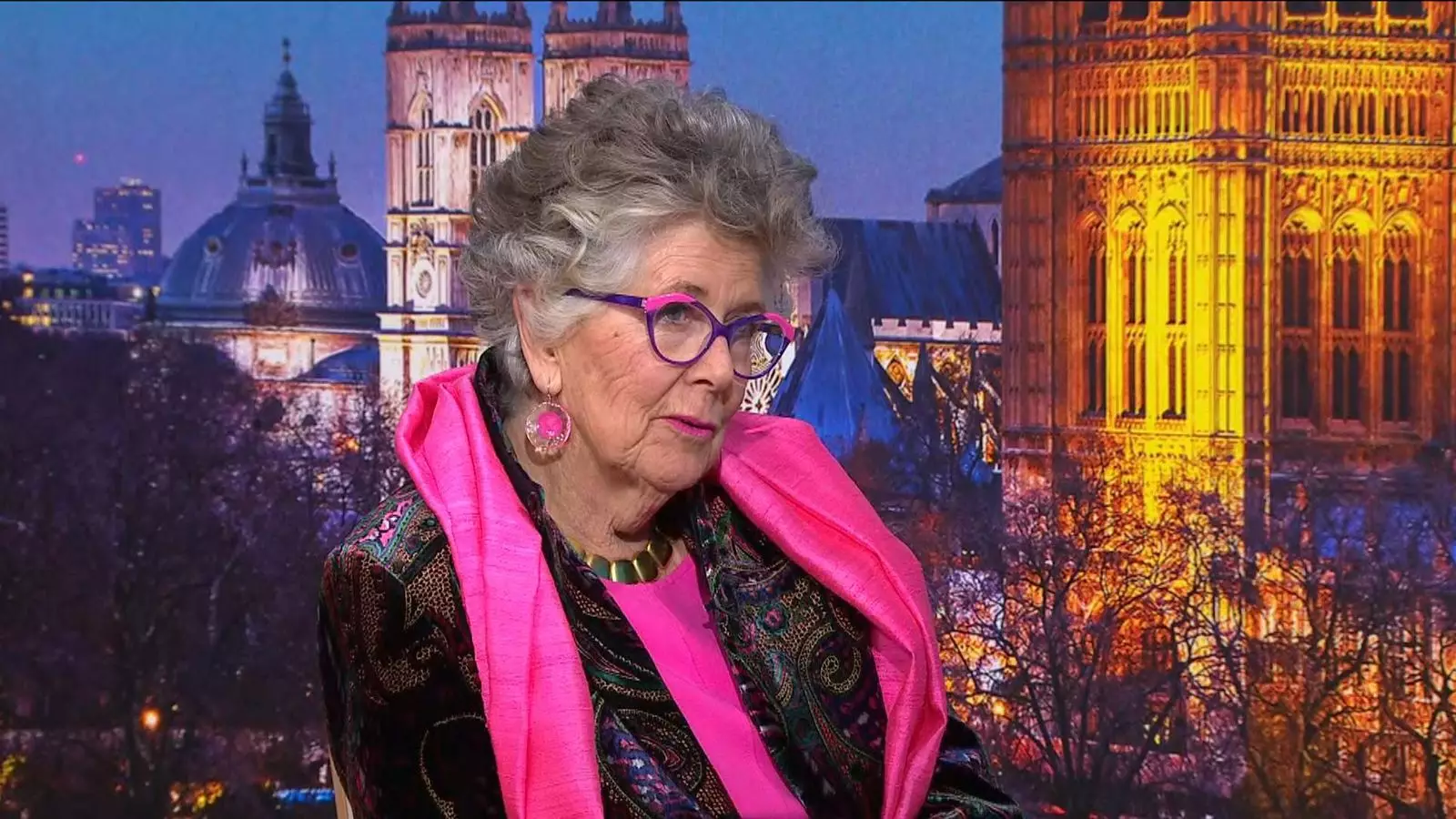Dame Prue Leith, a prominent figure in the culinary world and television, has recently shared her strong convictions regarding the ongoing discussion surrounding assisted dying legislation in the UK. Her deeply personal experience witnessing the agonizing decline of her brother David due to bone cancer has shaped her views significantly. As she discussed on the Politics Hub With Sophy Ridge, Leith was profoundly affected by the harrowing scenes of his suffering, revealing her belief that had her son, Danny Kruger, observed such a painful end, his stance on assisted dying would likely differ. This perspective brings a human element to the dry, often sterile debate over policies that directly impact the lives and deaths of individuals facing terminal conditions.
The contrast between Dame Prue’s experience and her son’s political views underscores the complexities surrounding end-of-life decisions. While the public discourse tends to emphasize philosophical arguments regarding autonomy and moral objections, the visceral reality of suffering can transform rhetoric into a personal fight for compassion. Leith’s impassioned plea to “vote for change” resonates deeply within the context of the proposed Terminally Ill Adults (End of Life) Bill, which seeks to allow terminally ill adults over 18 in England and Wales to receive medical assistance in ending their lives.
The upcoming debate in Parliament highlights the polarized views on assisted dying, with MPs poised for what could be a historic vote. Leith’s advocacy for change stands in stark contrast to her son’s reservations. Danny Kruger, the shadow work and pensions minister, argues that the need for assisted dying would diminish with the advancement of high-quality palliative care. His comments reflect a broader sentiment among some politicians that emphasize improving existing healthcare provisions over the introduction of legislation that would legalize assisted dying.
This clash of perspectives between a personal account of suffering and political ideology speaks volumes about the debate’s complexity. Leith’s memories of David’s final days—a torment of prolonged pain that morphine couldn’t alleviate—challenge the notion that improved palliative options alone can erase the need for assisted dying. She articulated the anguish not only of the dying but also of their loved ones and caregivers, implicating that the current system often fails those it is meant to serve. This dual suffering—of patients and their families—should prompt serious consideration from policymakers who typically have not faced such harsh realities.
While critics of the proposed legislation raise alarms about a potential “slippery slope” towards indiscriminate euthanasia, it’s essential to examine the safeguards integrated into the proposed law. Labour MP Kim Leadbeater, the architect behind the bill, insists on its robust protections, designed to ensure that only those who truly wish to end their suffering are able to do so. This aspect of the bill merits serious engagement from lawmakers who might agree in principle with the idea of assisted dying yet harbor concerns about its practical implementation.
The conversation surrounding assisted dying is intrinsically tied to themes of dignity, choice, and the ethics of end-of-life care. Leith’s experience serves as a poignant reminder that the issue extends beyond abstract principles—it’s often grounded in deep emotional realities that call into question the adequacy of current laws.
The Path Forward: Balancing Compassion and Caution
As the debate unfolds, it is paramount that lawmakers approach the issue of assisted dying with both compassion and caution. The scope of suffering experienced by terminally ill patients, as demonstrated poignantly by Dame Prue’s eyewitness account, demands legislative action that respects individual autonomy while safeguarding vulnerable populations. Such a balance is not easily achieved, necessitating open dialogue that encompasses personal stories like hers, alongside the often-complex moral and ethical considerations intrinsic to the topic.
Ultimately, the push towards legislative change in assisted dying becomes not merely about law but about humanity—the desire to find a compassionate means of addressing the suffering of the terminally ill and acknowledging their right to make autonomous choices about their own lives and deaths. With MPs set to engage in critical discussions, the future of assisted dying legislation hinges on their ability to listen to both personal experiences and the collective wisdom of the medical and ethical communities, ensuring that any changes serve both compassion and clarity in one of life’s most challenging dilemmas.


Leave a Reply